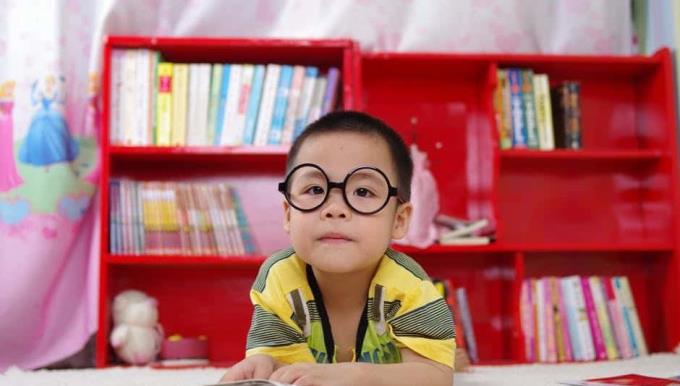Ways to determine an infants caloric needs

Learn how to determine your baby’s caloric needs, including the calories in breast milk and formula, to ensure your infant gets the right nutrition for healthy growth.
In today's busy life, parents do not have enough time to care for their children. Therefore, many people do not detect the child's unusual behavior.
Baby Bo (5 years old) has difficulty controlling herself, is very stubborn and answers harshly to any questions her mother asks. The boy often argued with his mother, even in public. Taking the child over to play at his friend's house, his mother almost had nightmares when Bo refused to listen to her mother and messed up hard to control.
Currently, this condition is common in children. There are no standards for evaluating normal or non-developmental behavior in children. This depends on your baby's personality, emotional development and mature environment. How do you distinguish whether that behavior is normal or not?
It is normal for a child to get angry, argue or scream. However, if this behavior persisted every day, then it was a matter of attention. Here are some signs that indicate that a child's behavior is unusual:
Children have difficulty controlling their emotions, and easily flare up with small things that bother them.
Impulsive behavior such as hitting, throwing, and yelling is unusual.
Be rude and unreasonable.
I often lie and have a habit of stealing.
Abnormal behavior affects a child's learning performance. For example, children may fight, go to school late or skip school.
Disagreements with peers also affect the baby's life. Babies cannot focus on something, are restless, lazy or disoriented.
Interesting sex acts at an age not to allow.
Children begin to question what you said and disobey you, even objecting to the rules you have set.
Usually, children do the opposite of what you prescribe and think that is right.
A three-year-old child who argues with you is funny and lovable. However, if a 7-year-old is always yelling "no" to what you say, it is worrying. If you do not handle it properly, quarreling can lead to a dispute between parents and children. The following are effective ways to teach your baby.
If the child argues but still follows your request or the child is not destructive, at this point, you can think and ignore the mistake for the child.
If your child does what you ask for but is still arguing, at this time, you should consider whether what he said is right or the behavior he did not affect anything. In addition, explain that your child may be angry but not speak disrespectfully to you.
If your child's reaction affects other people or themselves, pay close attention.
You should not react violently to your child's unusual behavior. Wait for your child to calm down, you talk about his or her behavior, explain what actions are acceptable, what actions are not? Let your child know the possible consequences of the behavior.
Do not intimidate children, but punish by not eating ice cream or watching movies.
Review how you and the people around you treat your baby. If you are also rude, disrespectful to others, change yourself.
Children often scream when they are angry but if they swear before the age of 10, you should be more concerned about this. When your child swears, you should take note of the following:
Do not swear in front of children.
Do not ignore the baby swearing, find out why they know this. Explain to your baby that swearing is not good.
If you are also using these bad words in front of them, apologize to them for missing out.
When a child is angry, it is normal to be aggressive. Mood, psychological, behavioral, traumatic, impulsive or frustrated disorders can lead to aggression in a child. Children can sometimes use violence to protect themselves. However, children can learn to be violent at school or at home. If your child has negative behaviors such as hitting, biting, or kicking, do the following:
You lower your voice and calmly talk to your baby.
Clearly tell your baby that actions such as hitting, kicking or biting are improper behaviors, leading to what consequences and what they should do instead of showing anger. For example, your baby says, "I'm angry" instead of "I don't like it" or "I'm not happy about it."
It is important that parents be a good role model for their children. Also, compliment your child's positive behavior and criticize his or her bad behavior.
Children often lie is also a concern of parents. You may feel deceived and heartbroken, or even distrust your baby. At this point, what you need to do is:
Find out why your child lies. Maybe because she was afraid of being scolded by her parents about something, she lied to hide the truth. If so, encourage your child to express his or her wishes to their parents, instead of lying to hide it.
Teach your baby to be honest and be a good role model for them.
Peer bullying is a serious problem that can affect someone else's emotional and physical well-being. Children tend to bully others to show that they are strong. When you see your child bullying others, please:
Teach your children that it's not good to bully others. You tell your baby what it means to bully others, that is to force other people to do something for you, to use violence to take other people's property.
Set up rules at home, write things like: "Don't bully in the house" or "You can't behave like that in the house".
Watch for early signs of bullying. When you see your child bullying your friend, correct the behavior right away.
Children tend to be violent, cry to get what they want. If you tolerate this bad behavior, you will only make your child feel that what you are doing is right. For example, your child gets upset just because you are not buying candy or toys. When the child cries and cries, you think to buy candy for the child just to relieve the anger, you accidentally pampered him in the wrong way. In a nutshell, when the baby is tireless, you are determined not to spoil the baby's will but explain to the baby clearly so that it will not become a fight.

Whether it is exercising at school, participating in entertainment or playing with friends, children refuse to participate. To help motivate your child:
Encourage your baby by telling stories from your childhood to share experiences and inspire them.
Do not force your child to have any hobbies, but let them choose. This will help children be more interested in what they choose.
Are you forcing your child to do something? Have you asked what your baby likes? Take a look to know what your baby likes, thereby motivating him.
Every morning, the child says, "I don't want to go to school". Children often refuse to go to school with reasons such as being bullied, doing homework, not wanting to leave their parents, dislike obeying school rules or anxiety. What you need to do is:
Find out why your child doesn't like studying and doing homework. Once you know the cause, you can go to school to help your child find a solution. For example: your child is bullied, you take your child to meet a bully friend to talk to. If the situation doesn't improve, you can ask your teacher for help.
You should encourage your baby to study, teach him difficult exercises, but not give him a reward for learning.
When your child's dislike to school doesn't improve, you can ask a therapist or doctor to help you.
Sometimes a child's unusual behavior can be a symptom of a behavior disorder. Below are some of the more common behavioral disorders in children.
Anti-challenge disorder is a common harmful behavior that affects children. Symptoms of ODD are: anger, flare-ups, frequent rage, resisting rules, disturbing others, blaming others for their mistakes.
Children with sensory processing disorders often cheat and do not follow rules. In the US, about 5% of children under the age of 10 have this disorder. Sensory-processing disorder behaviors include disobedience to the rules set by parents or the school, frequent truancy, abuse of alcohol, tobacco, drugs as a child, aggression, beating pets , using weapons, or lying, likes to commit crimes such as theft, burning property, breaking into other people's homes, running away, suicidal tendencies (very rare).
Attention-deficit hyperactivity disorder is related to attentive and impulsive behavior in children, manifested by difficulty concentrating on a problem, disorientation when talking to children, difficulty remembering knowledge of school or instructions, difficult to focus on details.
Children with personality disorders often become indifferent to other people's problems. This disorder often gets worse as people get older, leading to illegal and unethical activities.
A symptom of not developing social skills is that children have difficulty communicating and interacting with others. Behavioral disorders in children manifest more clearly as children get older.

To effectively solve the child's behavior problems, you let them participate in activities such as:
Exercise: Taking your child out to the park to exercise or play in the morning can help him or her feel more comfortable. If the child does not help relieve the psychology properly, the child may find relief such as anger or destruction.
Have your baby read aloud a book for their age, or read what they write.
Tell an activity that captures your baby's imagination. This helps the baby use energy reasonably and the baby's mood is also better.
Play healthy games or read educational books about good deeds such as helping others, being able to share, apologizing for something wrong, or thanking others for giving or helping.
Learn how to determine your baby’s caloric needs, including the calories in breast milk and formula, to ensure your infant gets the right nutrition for healthy growth.
Discover the top 5 smartest dog breeds in the world, including Border Collie, Poodle, German Shepherd, Golden Retriever, and Doberman Pinscher. Learn about their unique traits and why they are considered the most intelligent dogs.
Discover 7 nutritious and delicious ways to cook egg porridge for babies, including recipes with cheese, pumpkin, tomato, and more. Learn how to prepare baby-friendly egg porridge with our expert tips.
After a series of medical measures they obtained a complete human vascular system profile.
Watermelon is one of the fruits that many people love, not only cheap but also delicious, nutritious and refreshing in the summer. To get delicious watermelon pieces, show off your housewives, your artistic talents to cut beautiful pieces of watermelon.
aFamilyToday Health - The digestive system and body in each baby is different. Parents need to recognize notes to deal with when babies have a food allergy!
Babies need many factors for perfect development. aFamilyToday Health shares with parents things to keep in mind when babies are 8 weeks old so that parents can take care of their babies the best!
Babies need many factors for perfect development. aFamilyToday Health shares with parents things to keep in mind when babies are 18 weeks so that parents can take care of their babies the best!
Babies need many factors for perfect development. aFamilyToday Health shares with parents things to keep in mind when babies are 28 weeks old so that parents can take care of their babies the best!
Babies need many factors for perfect development. aFamilyToday Health shares with parents things to keep in mind when babies are 32 weeks old so that parents can take care of their babies the best!








